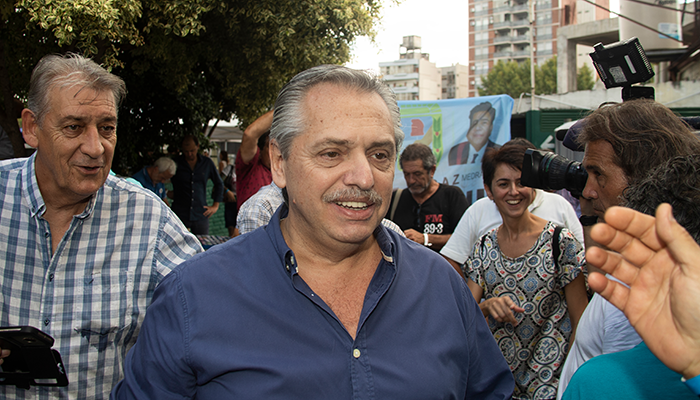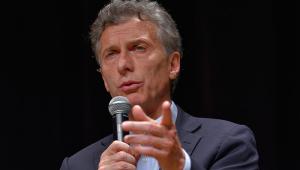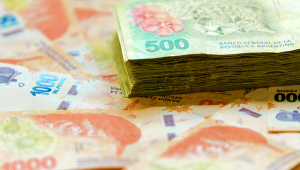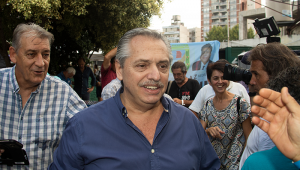web_alberto_fernandez_shutterstock_1400914277.png

Argentine president Alberto Fernández
The government, which has international debt of more than $65bn, missed a deadline to pay $503m in interest on 22 May, but remains confident that creditors are willing to negotiate a sustainable path forward.
Last week, IMF spokesman Gerry Rice told reporters that Argentina and the private bondholders are in “active negotiations”.
“We are encouraged by the willingness of both sides to continue discussions to reach an agreement,” he said.
The shape of this deal is so far unclear, but president Alberto Fernández, who took office late last year, is adamant that he will not agree to terms that damage Argentina’s economic recovery from the pandemic.
“We are not going to assume any commitment to our debt that delays what all Argentines, who are locked up in their homes, are waiting for: to go out, produce and grow Argentina,” he said.
Bondholders have been asked to accept a small cut in the principal amount they are owed, long delays to interest payments and for large payments to begin in a few years’ time.
This is Argentina’s third debt default since the turn of the millennium, after it defaulted in 2001 and 2014.
Fernández’s government and the IMF are expected to enter into discussions on a bailout deal in the near future, because the president believes the current relationship formalised under his predecessor Mauricio Macri makes Argentina “submissive”, and he rejects the austerity imposed by the fund’s conditions.













